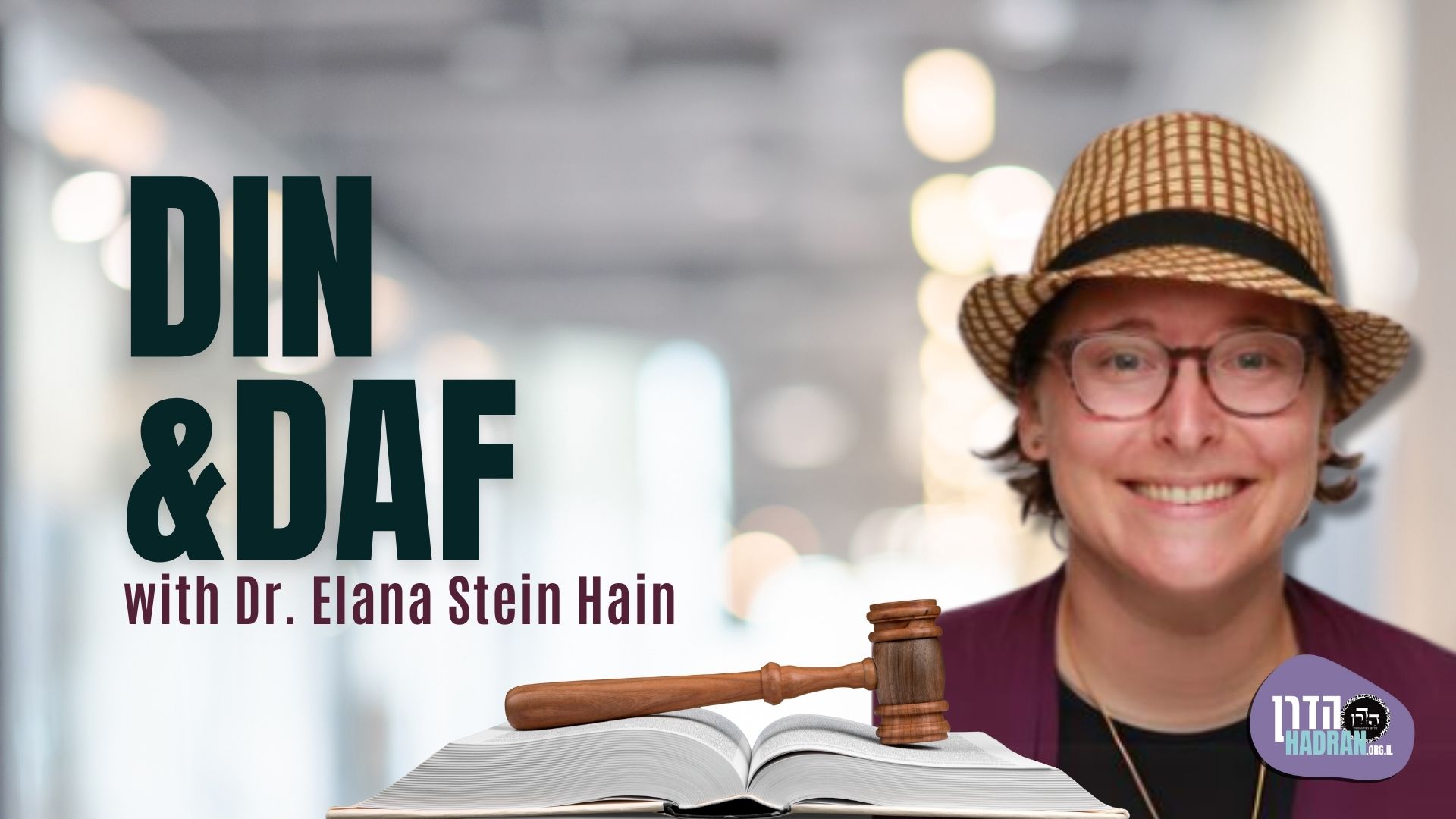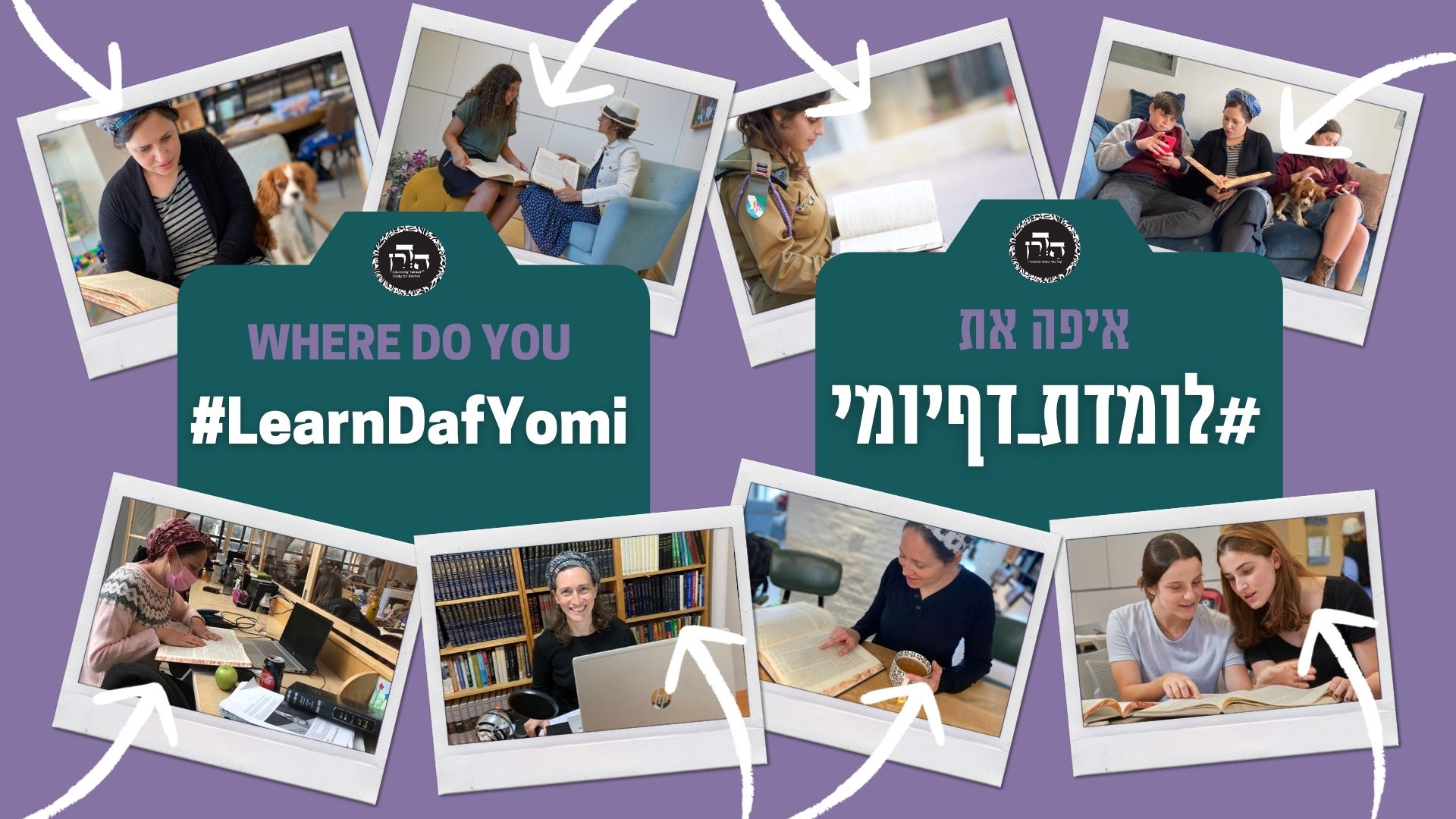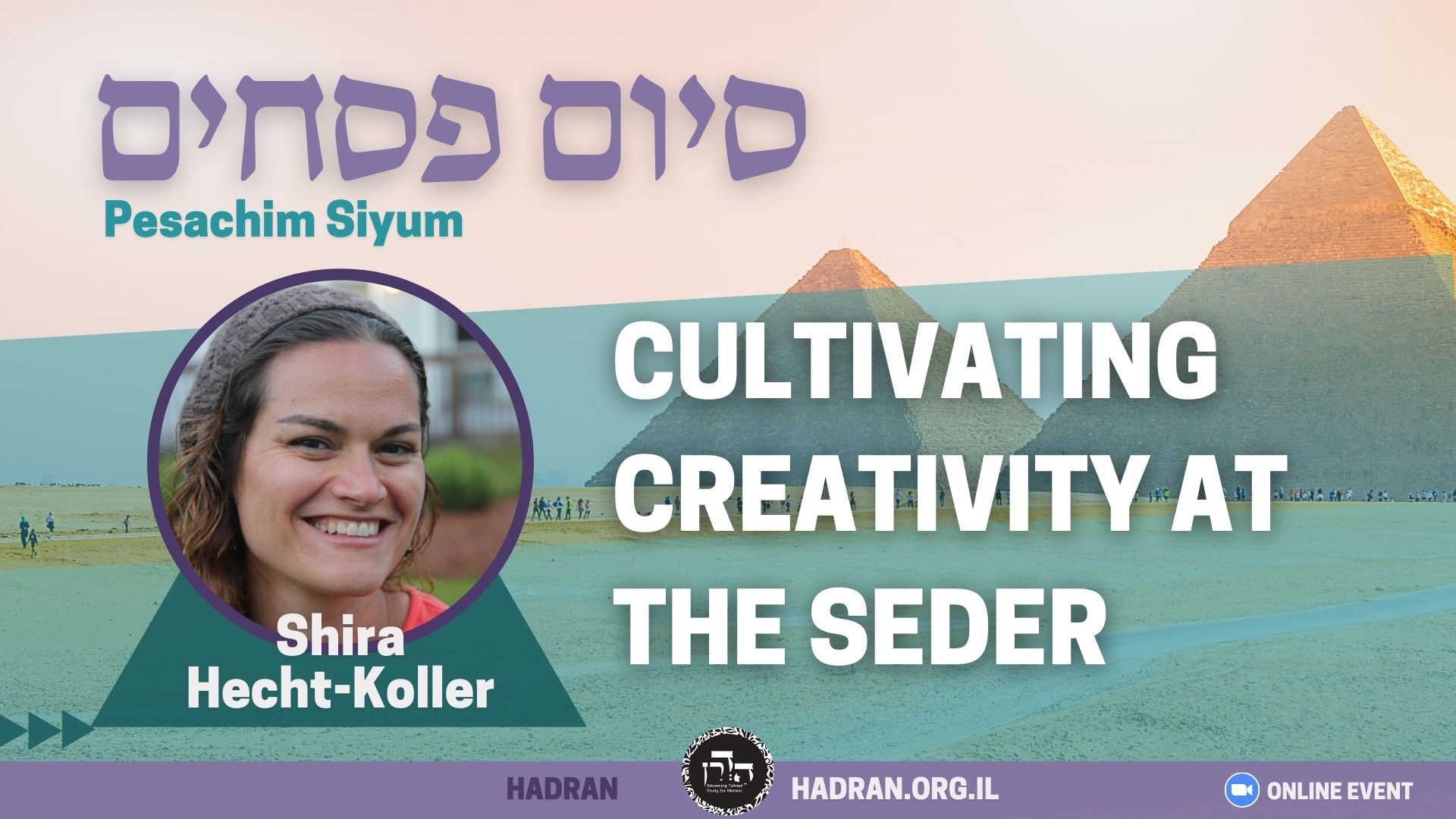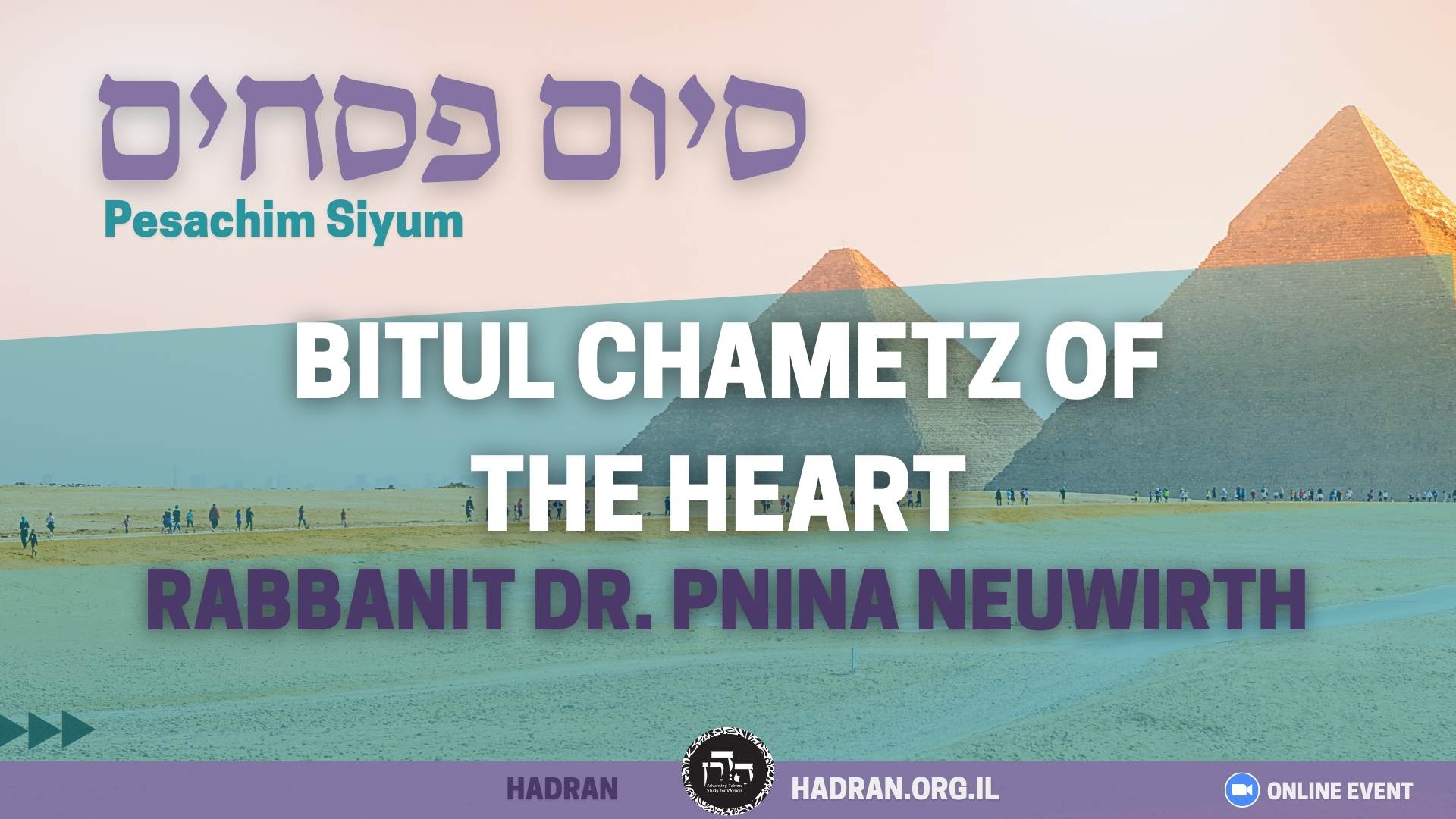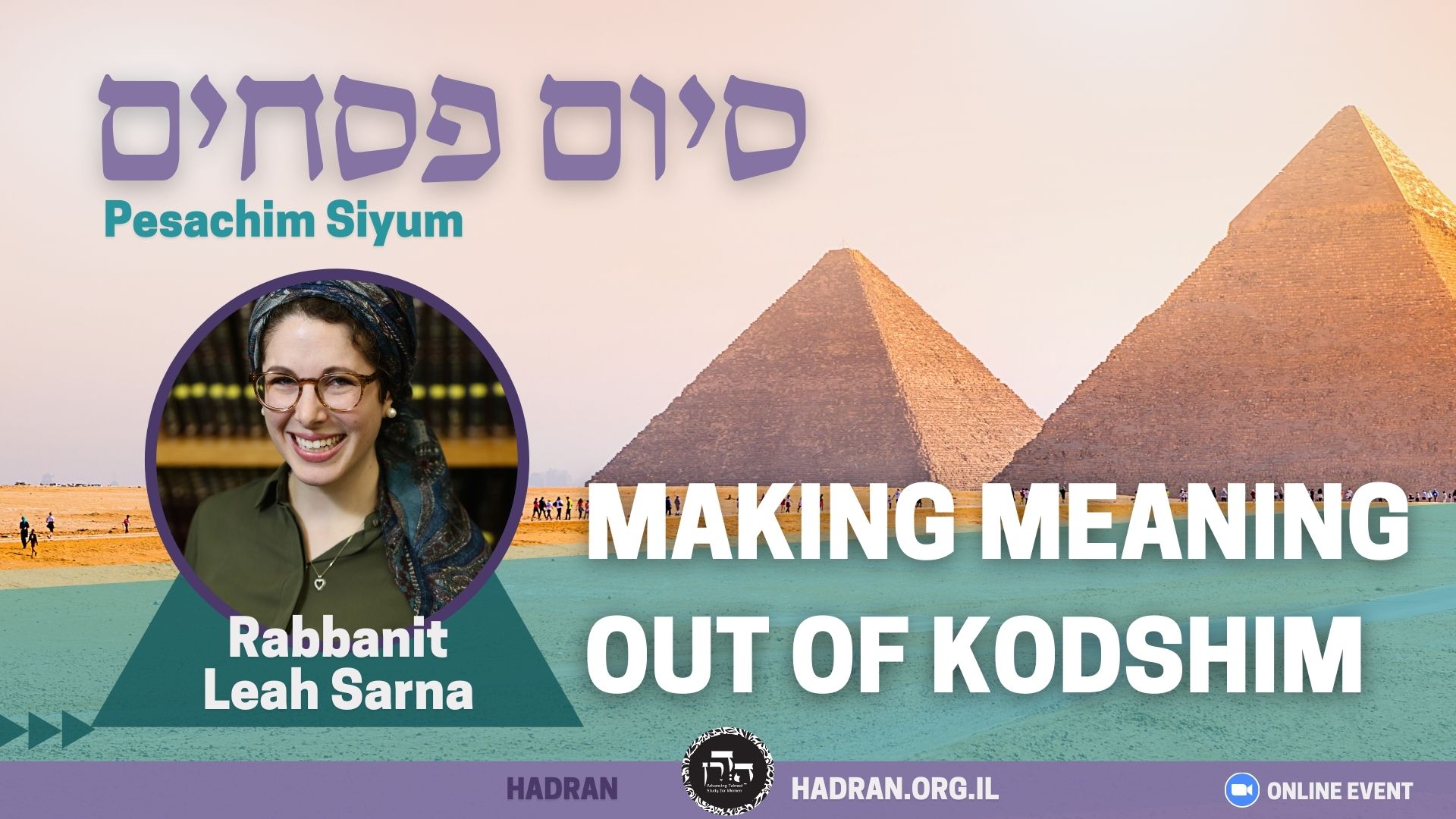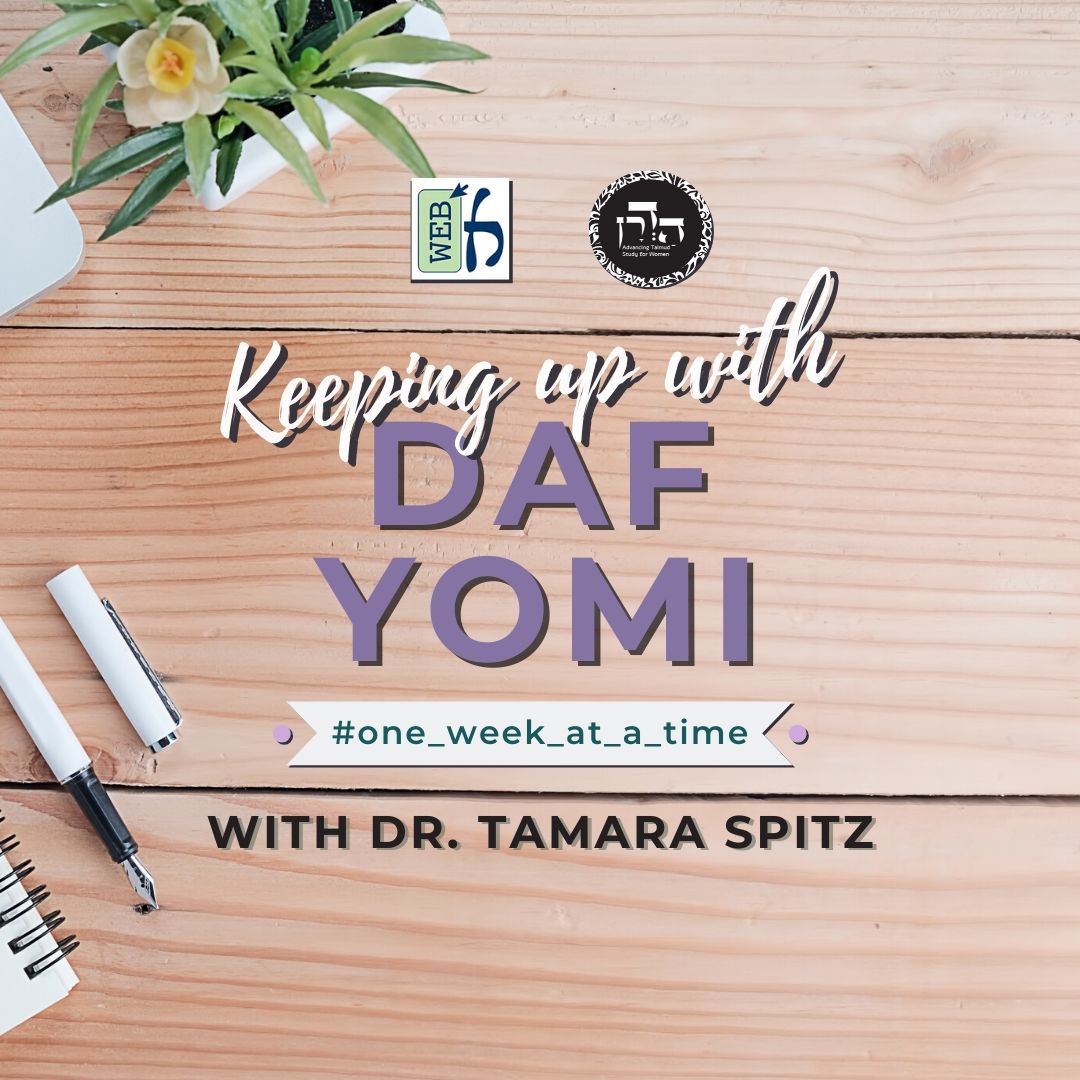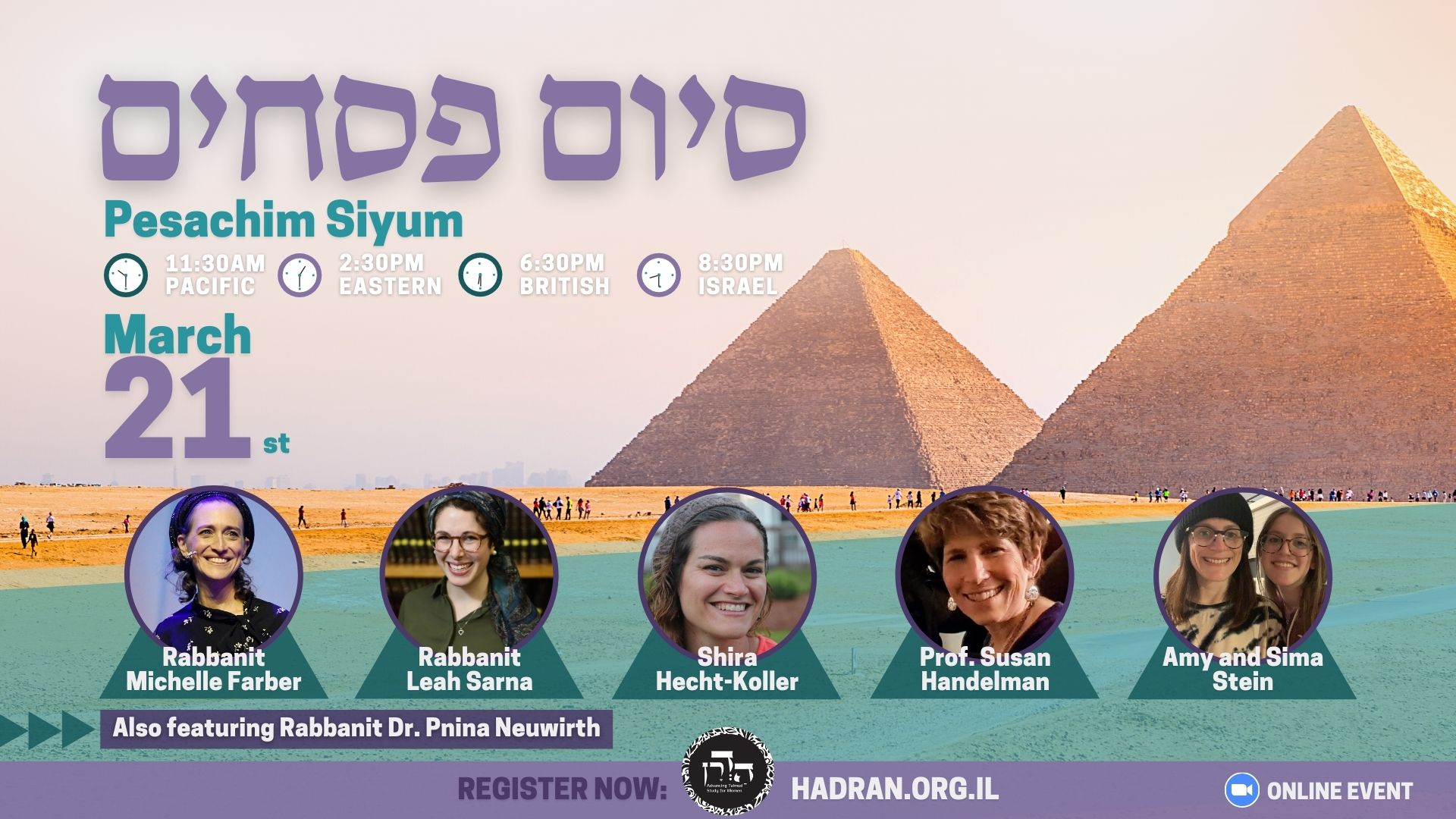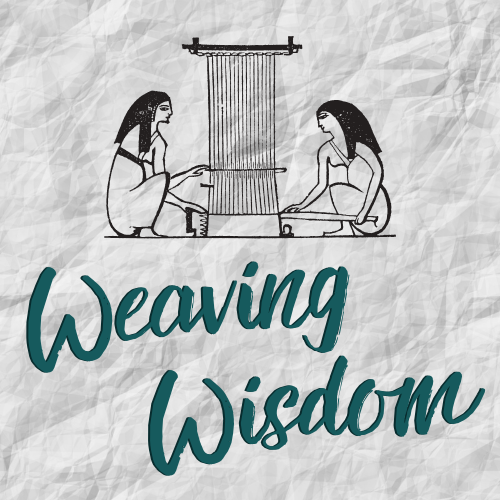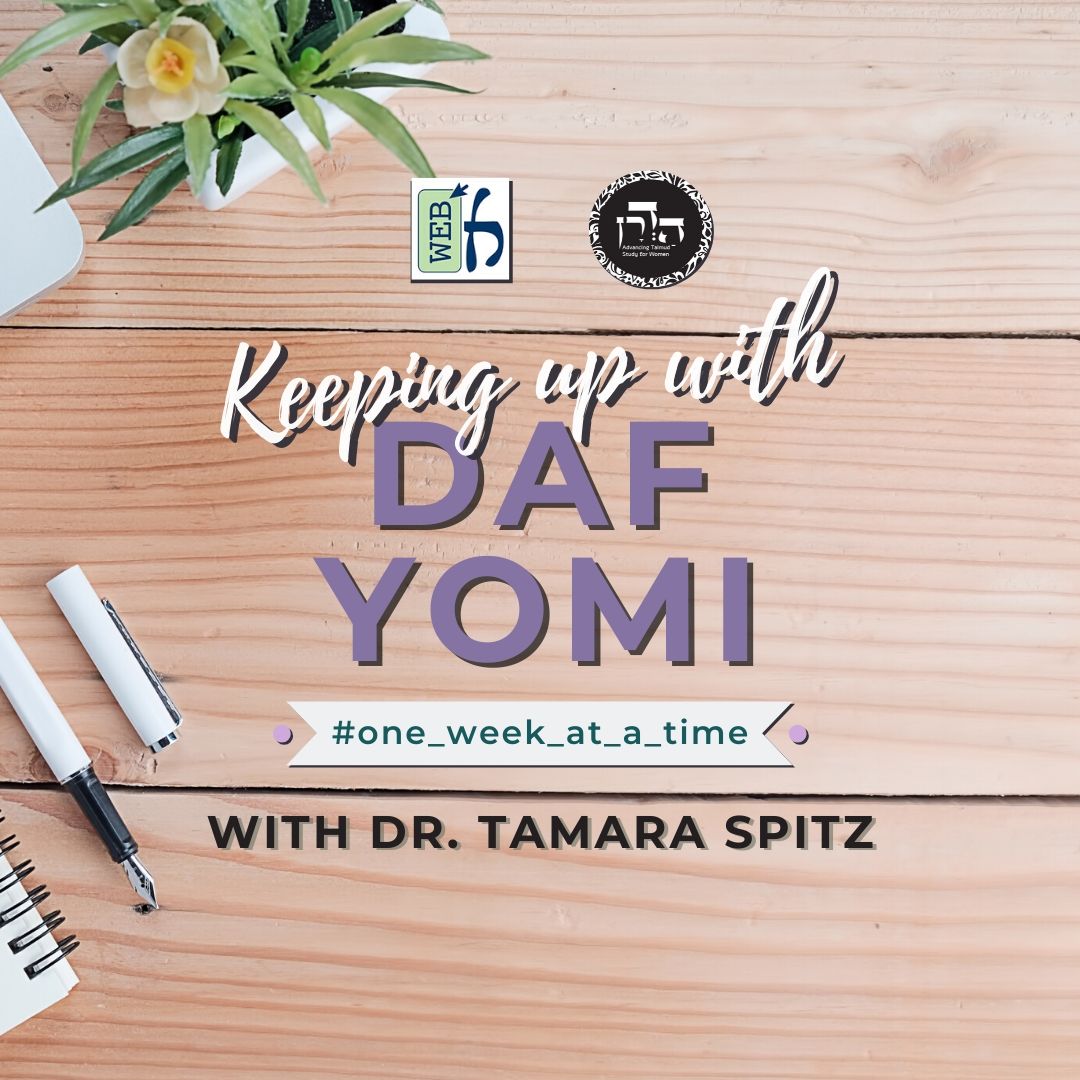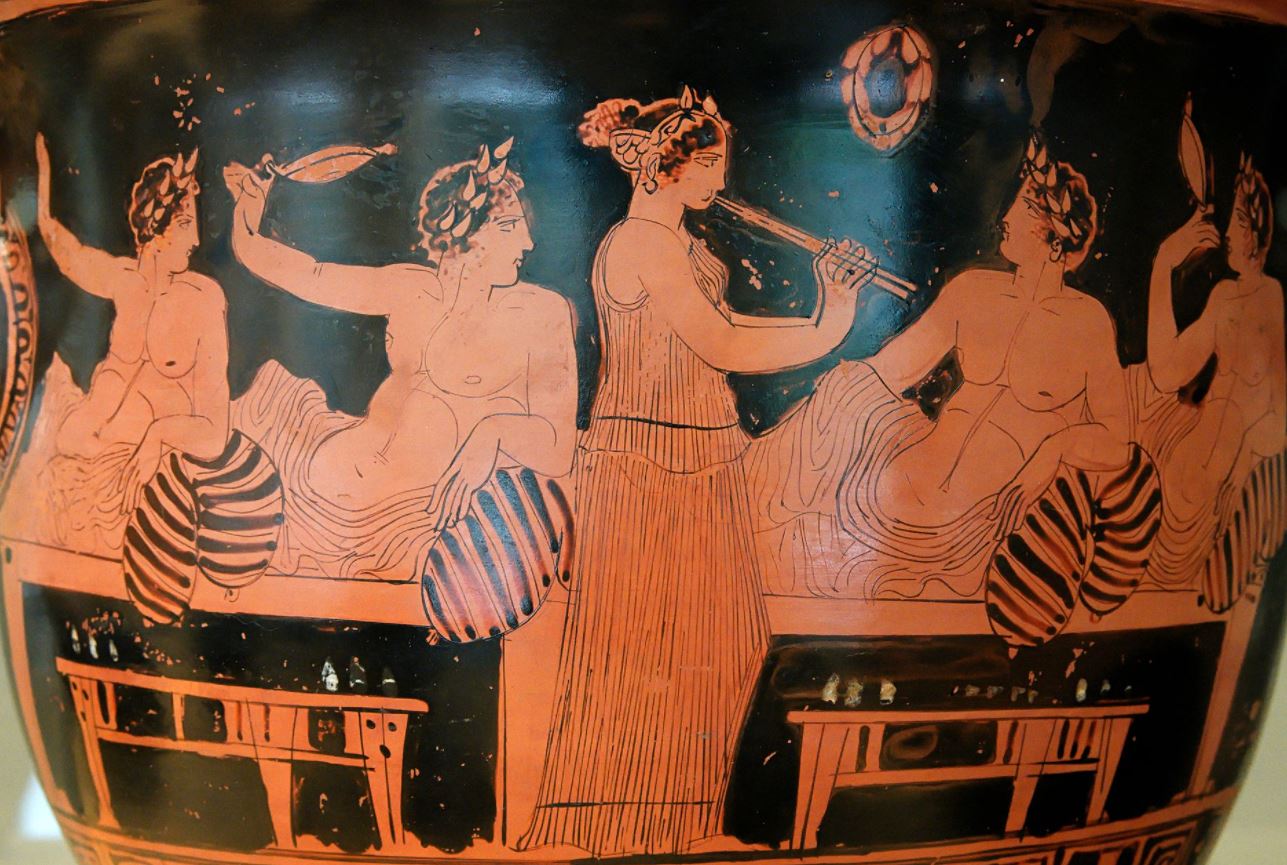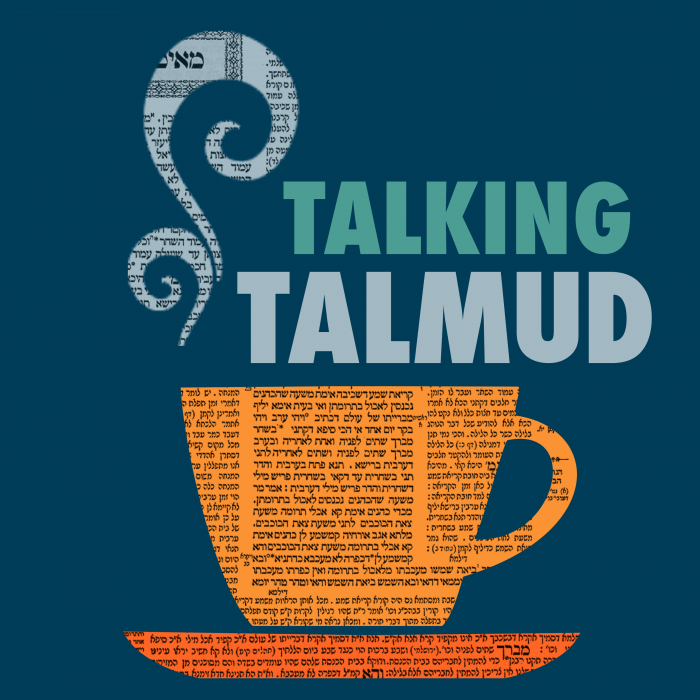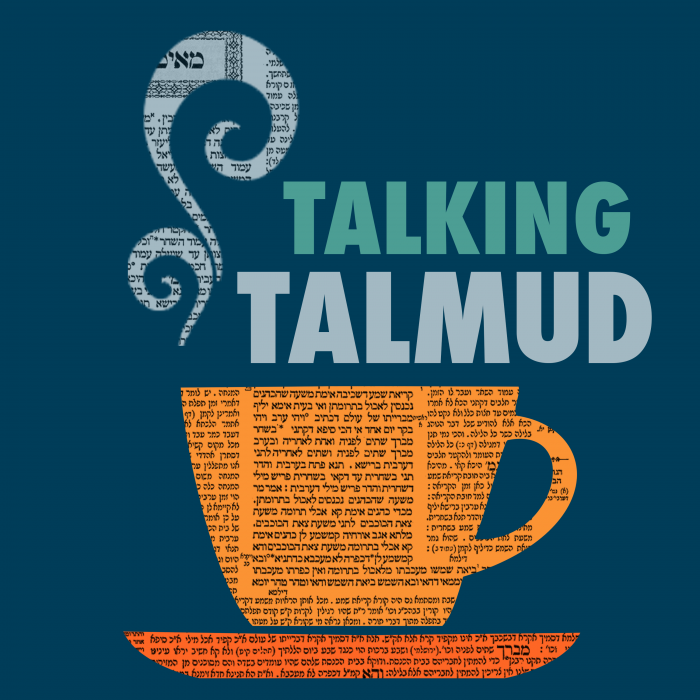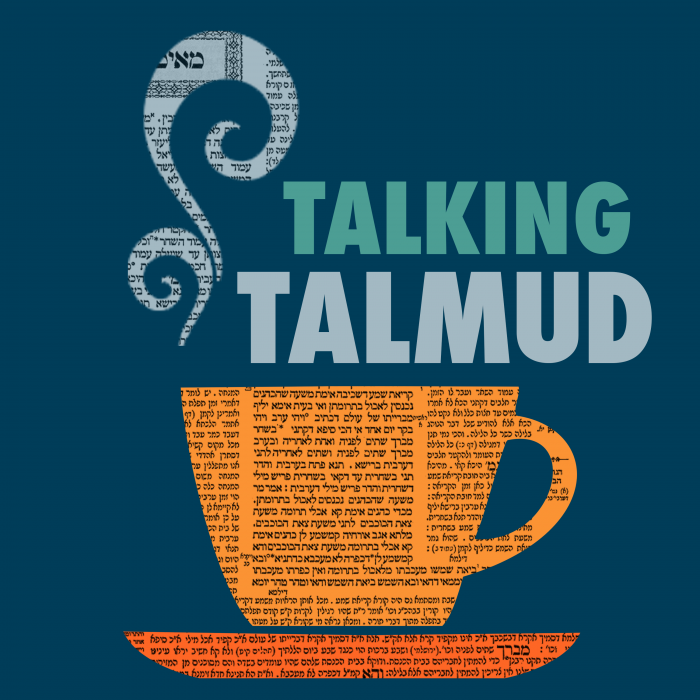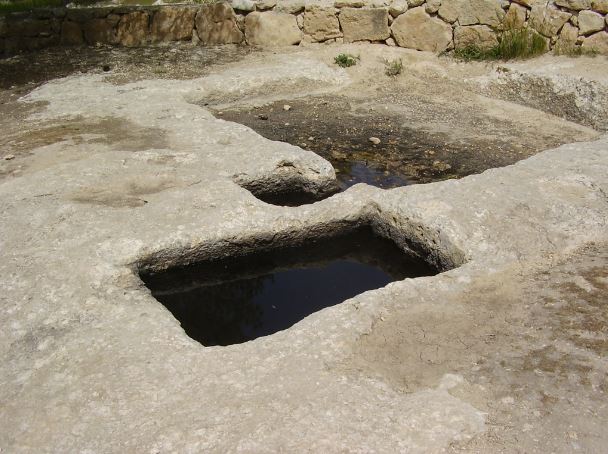Pesachim 114
רַבִּי יִצְחָק בֶּן אַחָא דִּשְׁמַעְתָּא, הוּא רַבִּי יִצְחָק בֶּן פִּנְחָס דְּאַגָּדְתָּא. וְסִימָנָיךְ (שִׁמְעוּ נָא אַחַיי וְרֵעַיי).
The Rabbi Yitzhak ben Aḥa mentioned in a ruling of halakha is the same as the Rabbi Yitzḥak ben Pineḥas who appears in statements of aggada. And your mnemonic to remember the names is the standard phrase: Listen my brothers and friends [shimu na aḥai vere’ai]. Shimu sounds like shema’ta, the term for halakha, while aḥai is similar to the patronymic ben Aḥa.
אָמַר רָבָא בַּר בַּר חָנָה אָמַר רַבִּי יוֹחָנָן מִשְּׁמֵיהּ דְּרַבִּי יְהוּדָה בְּרַבִּי אִילְעַי: אֱכוֹל בָּצָל וְשֵׁב בַּצֵּל, וְלָא תֵּיכוּל אֲווֹזִין וְתַרְנְגוֹלִין וִיהֵא לִבְּךָ רוֹדֵף עָלֶיךָ. פְּחוֹת מִמֵּיכְלָךְ וּמִמִּשְׁתְּיָךְ, וְתוֹסֵיף עַל דֵּירְתָךְ.
Rabba bar bar Ḥana said that Rabbi Yoḥanan said, citing Rabbi Yehuda, son of Rabbi Elai: Eat an onion [batzal] and sit in the shade [batzel], i.e., eat inexpensive food while sitting in a comfortable place, but do not eat expensive geese and chickens, as your heart will pursue you, i.e., you will develop a taste for luxuries. Devote less to your food and your drink and spend more on your house, as one’s house is a better investment than food.
כִּי אֲתָא עוּלָּא, אָמַר: מַתְלָא מָתְלִין בְּמַעְרְבָא דְּאָכֵיל אַלְיְתָא — טָשֵׁי בְּעִלִּיתָא. דְּאָכֵיל קָקוּלִי — אַקִּיקְלֵי דְמָתָא שָׁכֵיב.
When Ulla came from Eretz Yisrael to Babylonia he said that they say the following proverb in the west, Eretz Yisrael: One who eats a fat tail [alita] must hide in the attic [aliyata] from creditors who think he is wealthy. One who eats vegetables [kakulei] can lie down in the city’s garbage [kiklei] without fear of others, as he is not in debt.
מַתְנִי׳ מָזְגוּ לוֹ כּוֹס רִאשׁוֹן. בֵּית שַׁמַּאי אוֹמְרִים: מְבָרֵךְ עַל הַיּוֹם, וְאַחַר כָּךְ מְבָרֵךְ עַל הַיַּיִן. וּבֵית הִלֵּל אוֹמְרִים: מְבָרֵךְ עַל הַיַּיִן, וְאַחַר כָּךְ מְבָרֵךְ עַל הַיּוֹם.
MISHNA: The tanna describes the beginning of the Passover seder. The attendants poured the wine of the first cup for the leader of the seder. Beit Shammai say: One recites the blessing over the sanctification of the day, i.e., the kiddush for the Festival: Who blesses Israel and the Festivals, and thereafter he recites the blessing over the wine: Who creates fruit of the vine. And Beit Hillel say: One recites the blessing over the wine and thereafter recites the blessing over the day.
גְּמָ׳ תָּנוּ רַבָּנַן: דְּבָרִים שֶׁבֵּין בֵּית שַׁמַּאי וּבֵית הִלֵּל בַּסְּעוּדָה. בֵּית שַׁמַּאי אוֹמְרִים: מְבָרֵךְ עַל הַיּוֹם, וְאַחַר כָּךְ מְבָרֵךְ עַל הַיַּיִן — מִפְּנֵי שֶׁהַיּוֹם גּוֹרֵם לַיַּיִן שֶׁיָּבֹא, וּכְבָר קִידֵּשׁ הַיּוֹם וַעֲדַיִין יַיִן לֹא בָּא.
GEMARA: The Sages taught in the Tosefta: These are the matters of dispute between Beit Shammai and Beit Hillel with regard to the halakhot of a meal. Beit Shammai say: When reciting kiddush over wine, one recites a blessing over the sanctification of the day and thereafter recites a blessing over the wine, because the day causes the wine to come before the meal. And Beit Shammai offer an additional reason. The day has already been sanctified and the wine has not yet come.
וּבֵית הִלֵּל אוֹמְרִים: מְבָרֵךְ עַל הַיַּיִן, וְאַחַר כָּךְ מְבָרֵךְ עַל הַיּוֹם — מִפְּנֵי שֶׁהַיַּיִן גּוֹרֵם לְקִידּוּשׁ שֶׁתֵּאָמֵר. דָּבָר אַחֵר: בִּרְכַּת הַיַּיִן תְּדִירָה וּבִרְכַּת הַיּוֹם אֵינָהּ תְּדִירָה. תָּדִיר וְשֶׁאֵינוֹ תָּדִיר — תָּדִיר קוֹדֵם. וְהִילְכְתָא כְּדִבְרֵי בֵּית הִלֵּל.
And Beit Hillel say: One recites the blessing over the wine and thereafter recites a blessing over the day, because the wine causes kiddush to be recited. Since one does not recite kiddush without wine or bread, clearly the wine is the primary feature of the ritual. Alternatively, the blessing over wine is recited frequently and the blessing over the day is not recited frequently, and there is a general principle: When a frequent practice and an infrequent practice coincide, the frequent practice takes precedence over the infrequent practice. The Tosefta concludes: And the halakha is in accordance with the statement of Beit Hillel.
מַאי דָּבָר אַחֵר? וְכִי תֵּימָא הָתָם תַּרְתֵּי וְהָכָא חֲדָא — הָכָא נָמֵי תַּרְתֵּי נִינְהוּ: תָּדִיר וְשֶׁאֵינוֹ תָּדִיר — תָּדִיר קוֹדֵם.
The Gemara asks: What is alternatively? Why did Beit Hillel cite an additional reason? The Gemara explains: And if you say that there Beit Shammai cite two reasons, and here Beit Hillel offer only one; therefore, Beit Hillel said they are two reasons here too: When a frequent practice and an infrequent practice coincide, the frequent practice takes precedence over the infrequent practice.
וַהֲלָכָה כְּדִבְרֵי בֵּית הִלֵּל: פְּשִׁיטָא, דְּהָא נְפַיק בַּת קוֹל! אִיבָּעֵית אֵימָא: קוֹדֶם בַּת קוֹל,
It was taught in the Tosefta: And the halakha is in accordance with the statement of Beit Hillel. The Gemara comments: It is obvious that this is so, as a Divine Voice emerged and proclaimed that the halakha is always in accordance with the opinion of Beit Hillel. Why was it necessary for the Tosefta to state that in this particular case the halakha is in accordance with their opinion? The Gemara answers: If you wish, say that this Tosefta was taught before the Divine Voice emerged and proclaimed that principle.
וְאִי בָּעֵית אֵימָא: לְאַחַר בַּת קוֹל, וְרַבִּי יְהוֹשֻׁעַ הִיא, דְּאָמַר: אֵין מַשְׁגִּיחִין בְּבַת קוֹל.
And if you wish, say instead that this statement was indeed issued after the Divine Voice emerged, and the Tosefta is in accordance with the opinion of Rabbi Yehoshua, who said that one disregards a Divine Voice when deciding halakha. Just as Rabbi Yehoshua disregarded the Divine Voice in his dispute with Rabbi Eliezer, so too, one disregards the Divine Voice that proclaimed that the halakha is in accordance with the opinion of Beit Hillel. Therefore, it was necessary to state that the halakha is in fact in accordance with the opinion of Beit Hillel here.
מַתְנִי׳ הֵבִיאוּ לְפָנָיו, מְטַבֵּל בַּחֲזֶרֶת עַד שֶׁמַּגִּיעַ לְפַרְפֶּרֶת הַפַּת. הֵבִיאוּ לְפָנָיו מַצָּה וַחֲזֶרֶת וַחֲרוֹסֶת וּשְׁנֵי תַבְשִׁילִין, אַף עַל פִּי שֶׁאֵין חֲרוֹסֶת מִצְוָה. רַבִּי אֱלִיעֶזֶר (בֶּן) צָדוֹק אוֹמֵר: מִצְוָה. וּבְמִקְדָּשׁ הָיוּ מְבִיאִין לְפָנָיו גּוּפוֹ שֶׁל פֶּסַח.
MISHNA: The attendants brought vegetables before the leader of the seder prior to the meal, if there were no other vegetables on the table. He dips the ḥazeret into water or vinegar, to taste some food before he reaches the dessert of the bread, i.e., the bitter herbs, which were eaten after the matza. They brought before him matza and ḥazeret and ḥaroset, and at least two cooked dishes in honor of the Festival. The tanna comments that this was the practice, although eating ḥaroset is not a mitzva but merely a custom. Rabbi Eliezer ben Tzadok says: Actually, it is a mitzva to eat ḥaroset. And in the period when the Temple stood and they offered the Paschal lamb, they brought before him the body of the Paschal lamb.
גְּמָ׳ אָמַר רֵישׁ לָקִישׁ: זֹאת אוֹמֶרֶת מִצְוֹת צְרִיכוֹת כַּוּוֹנָה. כֵּיוָן דְּלָא בְּעִידָּן חִיּוּבָא דְּמָרוֹר הוּא דְּאָכֵיל לֵיהּ, בְּ״בוֹרֵא פְּרִי הָאֲדָמָה״ הוּא דְּאָכֵיל לֵיהּ. וְדִילְמָא לָא אִיכַּוַּון לְמָרוֹר, הִלְכָּךְ בָּעֵי לְמֶהְדַּר לְאַטְבּוֹלֵי לְשֵׁם מָרוֹר. דְּאִי סָלְקָא דַעְתָּךְ מִצְוָה לָא בָּעֲיָא כַּוּוֹנָה, לְמָה לָךְ תְּרֵי טִיבּוּלֵי? וְהָא טַבֵּיל לֵיהּ חֲדָא זִימְנָא!
GEMARA: Reish Lakish said: That is to say that mitzvot require intent. One who performs a mitzva must do so with the intent to fulfill his obligation. The proof of this from the mishna is that since one does not eat the lettuce at the time of his obligation to eat bitter herbs, he eats it after reciting only one blessing: Who creates fruit of the ground. And clearly the reason is that perhaps he did not intend to fulfill his obligation to eat bitter herbs, and therefore he needs to dip it again for the purpose of bitter herbs. For if it could enter your mind that mitzvot do not require intent, why do you need two dippings? But he has already dipped the lettuce once.
מִמַּאי? דִּילְמָא: לְעוֹלָם מִצְוֹת אֵין צְרִיכוֹת כַּוּוֹנָה, וּדְקָאָמְרַתְּ תְּרֵי טִיבּוּלֵי לְמָה לִי? כִּי הֵיכִי דְּלֶיהְוֵי הֶיכֵּירָא לְתִינוֹקוֹת.
The Gemara rejects this contention: From where do you know that this is the case? Perhaps I can say that actually mitzvot do not require intent. And that which you said, why do I need two dippings, perhaps the reason is so that there should be a conspicuous distinction for the children, which will cause them to inquire into the difference between this night and all others.
וְכִי תֵימָא: אִם כֵּן לַישְׁמְעִינַן שְׁאָר יְרָקוֹת? אִי אַשְׁמְעִינַן שְׁאָר יְרָקוֹת, הֲוָה אָמֵינָא: הֵיכָא דְּאִיכָּא שְׁאָר יְרָקוֹת הוּא דְּבָעֵינַן תְּרֵי טִיבּוּלֵי, אֲבָל חֲזֶרֶת לְחוֹדֵהּ לָא בָּעֵי תְּרֵי טִיבּוּלֵי, קָמַשְׁמַע לַן דַּאֲפִילּוּ חֲזֶרֶת בָּעֵינַן תְּרֵי טִיבּוּלֵי, כִּי הֵיכִי דְּלֶיהְוֵי בֵּיהּ הֶיכֵּירָא לְתִינוֹקוֹת.
And if you say: If so, let the tanna teach us this halakha with regard to other vegetables as well, as there is no obvious reason that lettuce is chosen for this distinction. In response, I would say that had the mishna taught us about other vegetables, I would have said that it is only where there are other vegetables that one requires two dippings, one for the other vegetables and one for the bitter herbs; however, if one has only ḥazeret, he does not require two dippings, as one dipping is sufficient. Therefore, the mishna teaches us that even if one has just ḥazeret he requires two dippings, so that there be a conspicuous distinction for the children.
וְעוֹד תַּנְיָא: אֲכָלָן דְּמַאי — יָצָא. אֲכָלָן בְּלֹא מִתְכַּוֵּין — יָצָא. אֲכָלָן לַחֲצָאִין — יָצָא.
And furthermore, it was taught in a baraita: On Passover, if one ate vegetables of doubtfully tithed produce, i.e., he bought the vegetables from an am ha’aretz, he has fulfilled his obligation. If he ate them without the intent of the mitzva, he has fulfilled his obligation. If he ate them in halves, by eating half an olive-bulk of bitter herbs, pausing, and then eating an additional half an olive-bulk, he has fulfilled his obligation.
וּבִלְבַד שֶׁלֹּא יִשְׁהֶא בֵּין אֲכִילָה לַחֲבֶירְתָּהּ יוֹתֵר מִכְּדֵי אֲכִילַת פְּרָס!
And the Gemara adds: With regard to this last case, one who eats an olive-bulk in halves, that is the halakha, provided that he does not pause between eating the first half an olive-bulk and the other half an olive-bulk more than the time it takes to eat a half-loaf of bread. If one takes longer than this amount of time, the two parts of bitter herbs cannot combine. This baraita indicates that even if one eats the bitter herbs without intention he has fulfilled his obligation, which presents a difficulty for Reish Lakish.
תַּנָּאֵי הִיא. דְּתַנְיָא, רַבִּי יוֹסֵי אוֹמֵר: אַף עַל פִּי שֶׁטִּיבֵּל בַּחֲזֶרֶת — מִצְוָה לְהָבִיא לְפָנָיו חֲזֶרֶת וַחֲרוֹסֶת וּשְׁנֵי תַבְשִׁילִין.
The Gemara answers: The issue of whether or not mitzvot require intent is a dispute between tanna’im, as it was taught in a baraita: Rabbi Yosei says: Although one has already dipped the ḥazeret once, it is a mitzva to bring before him ḥazeret and ḥaroset, and two cooked dishes. Apparently, he lacked intention during his first consumption of lettuce, and therefore he must be given additional lettuce with which to fulfill his obligation.
וְאַכַּתִּי מִמַּאי? דִּילְמָא קָסָבַר רַבִּי יוֹסֵי מִצְוֹת אֵין צְרִיכוֹת כַּוָּונָה, וְהַאי דְּבָעֵינַן תְּרֵי טִיבּוּלֵי כִּי הֵיכִי דְּתִיהְוֵי הֶיכֵּירָא לְתִינוֹקוֹת. אִם כֵּן, מַאי ״מִצְוָה״?!
The Gemara asks: And still this is no conclusive proof, as from where do I know that Rabbi Yosei is of the opinion that mitzvot require intent? Perhaps Rabbi Yosei maintains that mitzvot do not require intent, and the reason that we require two dippings is so that there should be a conspicuous distinction for the children. The Gemara rejects this argument: If so, for what reason does Rabbi Yosei use the term mitzva? There is no mitzva from the Torah to provide a distinction to stimulate the curiosity of the young ones. The mitzva is to eat bitter herbs, and evidently this individual must return and eat them again because he lacked intention the first time.
מַאי שְׁנֵי תַבְשִׁילִין? אָמַר רַב הוּנָא: סִילְקָא וְאָרוֹזָא. רָבָא הֲוָה מְיהַדַּר אַסִּילְקָא וְאָרוֹזָא הוֹאִיל וְנָפֵיק מִפּוּמֵּיהּ דְּרַב הוּנָא.
The Gemara asks: What are these two cooked foods mentioned in the mishna? Rav Huna said: Beets and rice. The Gemara relates that Rava would seek beets and rice for his meal on Passover night, since this ruling came from Rav Huna’s mouth. Although Rava realized that Rav Huna was merely citing examples and did not mean that one must eat those specific foods, he wanted to fulfill the statement of his teacher precisely.
אָמַר רַב אָשֵׁי: שְׁמַע מִינַּהּ דְּרַב הוּנָא, לֵית דְּחָיֵישׁ לְהָא דְּרַבִּי יוֹחָנָן בֶּן נוּרִי. דְּתַנְיָא, רַבִּי יוֹחָנָן בֶּן נוּרִי אוֹמֵר: אוֹרֶז מִין דָּגָן הוּא וְחַיָּיבִין עַל חִימּוּצוֹ כָּרֵת, וְאָדָם יוֹצֵא בּוֹ יְדֵי חוֹבָתוֹ בַּפֶּסַח.
Rav Ashi said: Learn incidentally another halakha from this statement of Rav Huna, that there is no one who is concerned about that statement of Rabbi Yoḥanan ben Nuri. As it was taught in a baraita: Rabbi Yoḥanan ben Nuri says: Rice is a type of grain in all regards; and one is liable to receive karet for eating it in its leavened state on Passover; and one fulfills his obligation with it on Passover, if it was properly baked into matza. It can be inferred from Rav Huna’s suggestion to use cooked rice, that rice cannot become leavened.
חִזְקִיָּה אָמַר: אֲפִילּוּ דָּג וּבֵיצָה שֶׁעָלָיו. רַב יוֹסֵף אָמַר: צָרִיךְ שְׁנֵי מִינֵי בָשָׂר, אֶחָד זֵכֶר לַפֶּסַח, וְאֶחָד זֵכֶר לַחֲגִיגָה. רָבִינָא אָמַר: אֲפִילּוּ גַּרְמָא וּבִישּׁוּלָא.
Ḥizkiya said: The two cooked foods can even be fish and the egg that that was fried on it. Rav Yosef said: One requires two types of meat on Passover night, one in remembrance of the Paschal lamb and the other one in remembrance of the Festival peace-offering, which was also eaten on Passover night. Ravina said: For the two cooked foods one may use even the meat on the bone and the gravy in which it was cooked.
פְּשִׁיטָא, הֵיכָא דְּאִיכָּא שְׁאָר יְרָקוֹת, מְבָרֵךְ אַשְּׁאָר יְרָקוֹת ״בּוֹרֵא פְּרִי הָאֲדָמָה״ וְאָכֵיל, וַהֲדַר מְבָרֵךְ ״עַל אֲכִילַת מָרוֹר״ וְאָכֵיל.
With regard to the halakha of eating vegetables, the Gemara clarifies: It is obvious that where there are other vegetables available besides bitter herbs, at the first dipping one recites over the other vegetables the blessing: Who creates fruit of the ground, and eats, with the intention of including in this blessing the bitter herbs he will eat later. And then, at the second dipping, he recites the blessing: Commanded us over eating bitter herbs, on the lettuce and eats it.
הֵיכָא דְּלֵיכָּא אֶלָּא חַסָּא, מַאי? אָמַר רַב הוּנָא: מְבָרֵךְ מֵעִיקָּרָא אַמָּרוֹר ״בּוֹרֵא פְּרִי הָאֲדָמָה״ וְאָכֵיל, וּלְבַסּוֹף מְבָרֵךְ עֲלֵיהּ ״עַל אֲכִילַת מָרוֹר״ וְאָכֵיל.
However, what is the halakha where there is only lettuce available? When should one recite each blessing? Rav Huna said: One initially recites the blessing: Who creates fruit of the ground, over the bitter herbs, i.e., the lettuce, and eats them. And ultimately, after the matza, one recites the blessing: Commanded us over eating bitter herbs, over the lettuce and eats it.



